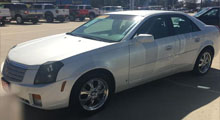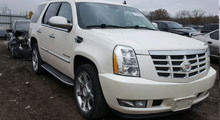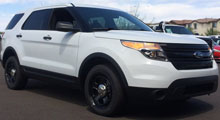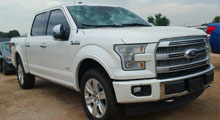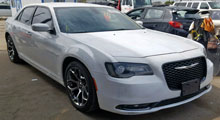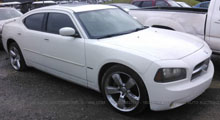What Is Boondocking?
Boondocking, also known as dry, wild, off-grid or dispersed camping, is authorized camping in dispersed, designated areas. In other words, it's RVing in the great outdoors, often far from any other RVs and civilization in general. With no amenities, little to no cost and great unspoilt views, boondocking can be a great way to relax and to experience nature close up, free from distractions. Every RVer has to try boondocking at least once, even if it's only to take advantage of all of their RV's facilities on a convenient overnight stop en route to an RV park.

How does it work?
Boondocking by nature is about freedom and flexibility, nothing can be reserved in advance and you're likely to have a least a couple of surprises, both good and bad. You can find out where you can camp for free on public land by searching online or by directly contacting the Bureau of Land Management, National Forests or National Grasslands. This is the best way forward as you can ask if particular sites will be suitable for your RV as some areas are best suited to smaller vehicles only, and you can also check duration limits, enquire after plan B spots and so on. There is also a Public Lands app available and you can research popular spots online, just don't expect to be the only ones there.
Preparation
Going off-grid and generally at quite some distance from the nearest town, you'll need to prepare and stock up on supplies. The more preparation you put in prior to leaving the more you will be able to relax and enjoy the great outdoors without any stress.
First and foremost, make backup plans and check your equipment. Try to gauge how much power and water you'll need per day and look up where you can empty your black water after your departure. Camping duration is usually limited to 14-30 days, however, you may want to move on earlier in order to dump and refill.
Efficiency
In order to maximize your time on site, you'll have to make some compromises in terms of power and water. Even with your generator and or solar panels, being off-grid, you won't be able to plug in and use all of your electrical devices. LED bulbs can save a lot of electricity and are a simple and effective way to make a difference without compromise. With careful planning you should know what you can use comfortably without struggling. BBQs can be a great way to save on power, just make sure that you check local fire regulations first. Hot water for washing up and showers can be minimized by washing up once daily and limiting showers.
To conserve water, you can replace your shower head with an aerator head that uses less water, as well as your faucet. If necessary you can also stop the shower whilst you wash and turn it back on to rinse. To help minimize water consumption further you can shower with a bucket at your feet to catch the water and then use this to flush your toilet. This also has the added bonus of reducing the amount of gray water produced. If you park near a water source, this can be transformed into drinkable water with a purifier, but you'll need power to run it. Alternatively, you could take bottled water with you for drinking.
Waste Water & Trash
Depending upon your tank sizes and water efficiency, you may be able to go quite some time without needing to dump your gray and black water. The weather may also play a part, especially hot summers. If you use environmentally friendly, bio-degradable products you can sprinkle a small amount of gray water on site to keep the dust down, however black water can only be dumped in specialized facilities. An alternative is to install a composting toilet.
Keep trash to a minimum by removing and disposing of any excess packaging prior to setting off. If you group trash into small bags it will be easier to dispose of in trash cans found in car parks and the like in small towns, allowing you to dispose as you go. When parked up on site, make sure that you keep any trash well sealed and inside of your RV. Leaving it outdoors may attract animals and insects or it could get blown away, damaging the beauty spot you came to enjoy.
Safety
Once again, preparation is paramount. There is generally no reason to fear and most of the isolated camping areas are much safer than crowded inner city centers. However, use your sense of judgement, always have a backup plan and if you feel unsafe anywhere for any reason move on to your second-choice location. If you have studied the area, have your mobile phone and a personal alarm you should feel safe enough to enjoy your stay. Always leave your coordinates with a friend or family member, especially if you are travelling solo.
Boondocking might not be for everyone, but it's certainly worth a try at least once. Many RVers are pleasantly surprised and feel truly relaxed, in a way that no campsite could ever provide. Wild camping is essentially what RVs are built for and even the most basic models will provide comfort, far from the modern world, at least for just a few days rest and relaxation.
